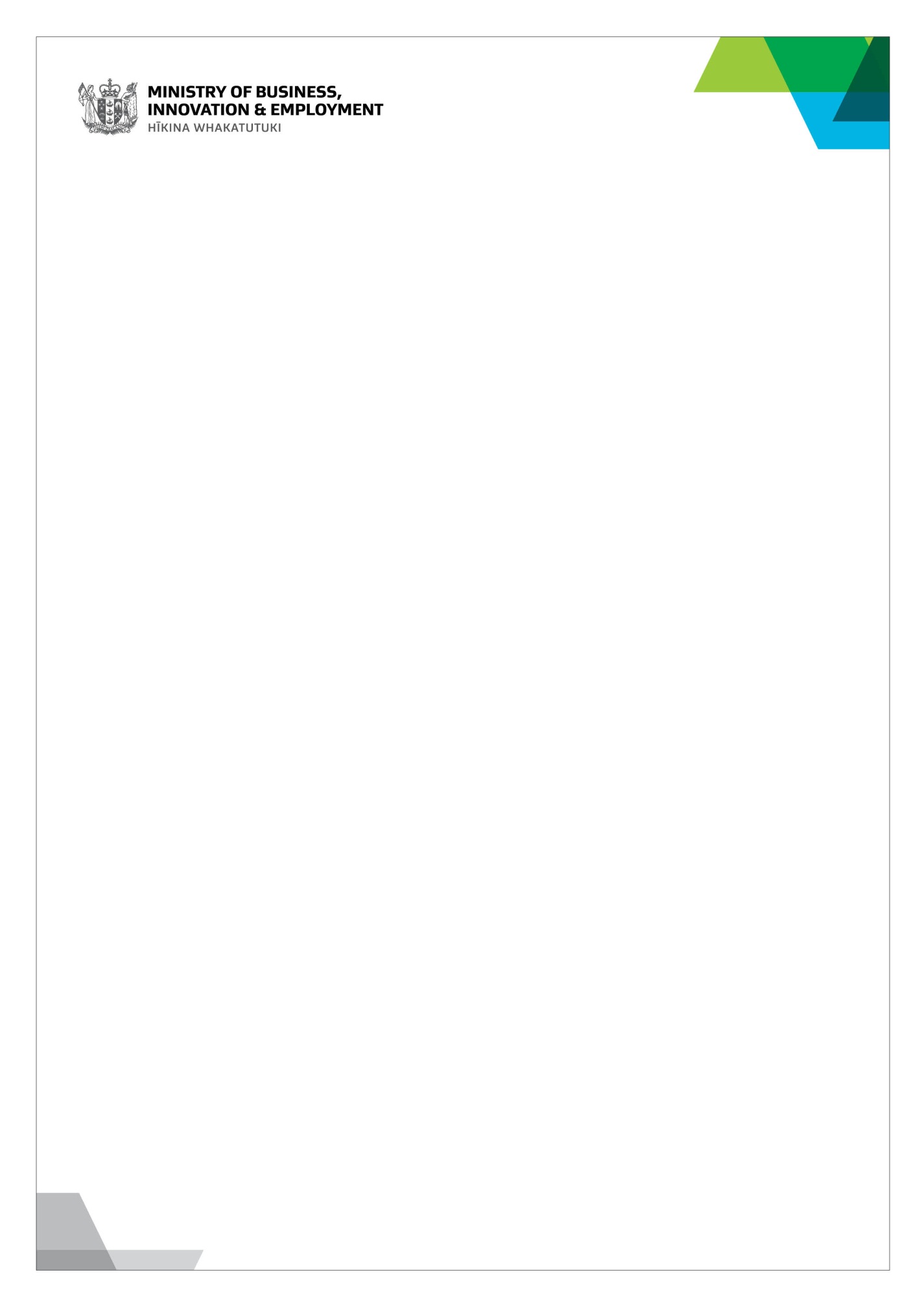
13 November 2020
Anatoliy Goryachev
[FYI request #13605 email]
Ref: DOIA 2021-0444
Dear Anatoliy Goryachev,
Thank you for your email of 27 August 2020 requesting under the Official Information Act 1982 (the OIA),
the following information:
“1) Going through previous FYI responses, I see that you keep posting us with weekly statistics
on the allocation numbers for priority and non-priority queues. The latest data we have was
for the week commencing 27 July 2020. Therefore, could I please ask you to provide CO
(thereafter CO – Case Officer) allocation figures for the following weeks (separately for
priority and non-priority queues):
a) Week commencing 03 August 2020 – Number of priority applications got CO /
Number of non-priority applications got CO
b) Week commencing 10 August 2020 – Number of priority applications got CO /
Number of non-priority applications got CO
c) Week commencing 17 August 2020 – Number of priority applications got CO /
Number of non-priority applications got CO
d) Week commencing 24 August 2020 – Number of priority applications got CO /
Number of non-priority applications got CO
2) What is the lodgement date for the oldest non-priority SMC/RFW application?
3) What is the total number of non-priority applications in SMC/RFW non-priority queue
currently awaiting for CO allocation? Also, please provide number of applicants behind these
applications.
4) If this is possible - could you please provide breakdown on the number of offshore and
onshore applications (applicants) awaiting for allocation in the SMC/RFW non-priority queue.
5) What is the number of priority SMC/RFW applications currently awaiting for officer
allocation?
6) Do you process offshore priority SMC applications? Are these applications being prioritized
over non-priority SMC/RFW onshore applications?
7) Could you please provide monthly breakdown numbers on how many non-priority
SMC/RFW applications/applicants who lodged their applications last year (2019) are waiting
for CO allocation:
a) January 2019 - Number of applications waiting for CO allocation / Number of
applicants waiting for CO al ocation
1
b) February 2019 - Number of applications waiting for CO allocation / Number of
applicants waiting for CO al ocation
c) March 2019 - Number of applications waiting for CO allocation / Number of
applicants waiting for CO al ocation
d) April 2019 - Number of applications waiting for CO allocation / Number of
applicants waiting for CO al ocation
e) May 2019 - Number of applications waiting for CO allocation / Number of
applicants waiting for CO al ocation
f) June 2019 - Number of applications waiting for CO allocation / Number of
applicants waiting for CO al ocation
g) July 2019 - Number of applications waiting for CO allocation / Number of
applicants waiting for CO al ocation
h) August 2019 - Number of applications waiting for CO allocation / Number of
applicants waiting for CO al ocation
i) September 2019 - Number of applications waiting for CO allocation / Number of
applicants waiting for CO al ocation
j) October 2019 - Number of applications waiting for CO allocation / Number of
applicants waiting for CO al ocation
k) November 2019 - Number of applications waiting for CO allocation / Number of
applicants waiting for CO al ocation
l) December 2019 - Number of applications waiting for CO allocation / Number of
applicants waiting for CO al ocation
8) When did Immigration New Zealand adopt the policy of application prioritisation and when
it was first shared with broad public?
9) What is the definition of "reasonable timeframe" for the SMC/RFW applications?
Our Response
Question 1: Going through previous FYI responses, I see that you keep posting us with weekly statistics
on the al ocation numbers for priority and non-priority queues. The latest data we have was for the week
commencing 27 July 2020. Therefore, could I please ask you to provide CO (thereafter CO – Case Officer)
allocation figures for the fol owing weeks (separately for priority and non-priority queues):
a) Week commencing 03 August 2020 – Number of priority applications got CO / Number of non-
priority applications got CO
b) Week commencing 10 August 2020 – Number of priority applications got CO / Number of non-
priority applications got CO
c) Week commencing 17 August 2020 – Number of priority applications got CO / Number of non-
priority applications got CO
d) Week commencing 24 August 2020 – Number of priority applications got CO / Number of non-
priority applications got CO
Please see table below which shows the number of Skilled Migrant Category (SMC) and Residence from
Work (RFW) applications allocated to a case officer from the onshore priority and non-priority queues
during the weeks you have requested:
Week Commencing Date Priority Queue Non Priority Queue
03 August 2020
154
48
10 August 2020
168
37
17 August 2020
165
4
24 August 2020
116
149
2
Question 2: What is the minimum accepted date for an application in the non-priority SMC/RFW queue
as at the most recent on-hand date?
As at 9 November 2020, the oldest application accepted for processing in the onshore non-priority queue
was accepted on 1 May 2019.
Question 3: What is the total number of non-priority applications in SMC/RFW non-priority queue
currently awaiting for CO allocation? Also, please provide number of applicants behind these
applications.
As at 2 November 2020, there were 14,343 SMC and RFW applications on hand in the non-priority queue.
Multiple people can be included in one visa application; the total number of individual people included in
the non-priority queue is 31,645.
Question 4: If this is possible - could you please provide breakdown on the number of offshore and
onshore applications (applicants) awaiting for al ocation in the SMC/RFW non-priority queue.
The table below shows the number of applications and applicants (principle and secondary) on hand in
the non-priority queue as at 2 November 2020, broken down by the current location of the principle
applicant (onshore/offshore) as at 2 November 2020:
Location of client
Number of applications Number of people
In New Zealand
12,725
27,164
Outside New Zealand
1,618
4,481
Question 5: How many applications are in the SMC/RFW priority queue as at the most recent on-hand
date?
As at 2 November 2020 there were 47 SMC and RFW applications on hand in the priority queue
.
It should be noted that INZ is not currently processing visa applications from individuals who are offshore.
This is because legally INZ is unable to grant visas to individuals who are unlikely to meet entry
requirements to New Zealand.
Question 6: Do you process offshore priority SMC applications? Are these applications being prioritized
over non-priority SMC/RFW onshore applications?
Applications are processed in the order and manner of processing outlined in Immigration Instructions at
A16.1. A16.1 details that first priority will be given to residence class visas where the applicant is in New
Zealand. Within this, further prioritisation criteria will apply to applications under SMC and RFW with job
offers where applicants have an hourly rate equivalent to or higher than twice the median wage; or
applicants who hold current occupational registration where registration is required by immigration
instructions.
Second priority will be given to residence class visa applications where the applicant is offshore (other
than those that meet criteria for prioritisation above).
Question 7: As at the most recent on-hand date, for SMC/RFW applications accepted in each calendar
month of 2019, how many applications and applicants remain in the non-priority queue?
The table below shows the number of SMC and RFW applications, and applicants (principle and secondary)
on hand in the onshore non-priority queue as at 2 November 2020 that were accepted for processing
3
during 2019 and are still awaiting allocation to an immigration officer. As noted in questions 2, all
applications lodged on or before 1 May 2019, whether they are priority or non-priority, have been
allocated to a case officer:
Month accepted
Number of applications Number of applicants
May
417
901
June
564
1,164
July
940
1,913
August
822
1,730
September
758
1,539
October
838
1,801
November
925
2,006
December
912
2,003
Question 8: When did Immigration New Zealand adopt the policy of application prioritisation and when
it was first shared with broad public?
Over the last couple of years, demand for the SMC and RFW sub-stream has risen significantly. This has
resulted in longer decision times for applicants.
Since mid-2018, INZ has prioritised allocation of SMC and RFW applications where the principal applicant
worked in an occupation requiring registration, was highly paid or applied under the Residence from Work
– Talent (Accredited Employer) category.
To better manage the queue of residence applications going forward, in February 2020 INZ with the
endorsement of the Minister of Immigration at the time, formalised the priority allocation of some SMC
and RFW applications for highly paid applicants and applicants with current occupational registration
(where registration is required by Immigration Instructions).
This allowed INZ to start allocating older, non-priority applications on a more consistent basis.
Question 9: What is the definition of "reasonable timeframe" for the SMC/RFW applications?
A reasonable timeframe is the amount of time which is necessary to undertake a certain task, as soon as
circumstances permit. Applications that don’t meet the criteria for prioritisation are allocated to an
immigration officer in the order they are received as soon as circumstances permit.
Once an application is allocated, an immigration officer will then assess the application to check that the
applicant and any family included can be granted a visa. Applicants wil be contacted when an application
has been allocated to an immigration officer, who will advise if any further information is required.
The time taken to assess an application can vary considerably. This depends on the quality of the
supporting documents and whether we require further information or verification of the information
provided.
Any updates in regards to the allocation of applications can be found via the following link:
www.immigration.govt.nz/about-us/media-centre/news-notifications/how-we-prioritise-resident-visa-
applications/smc-and-rfw-timeframe-information
You have the right to seek an investigation and review by the Ombudsman of the decision to refuse parts
of your request. Information about how to make a complaint is available at
www.ombudsman.parliament.nz or freephone 0800 802 602.
4

If you wish to discuss any aspect of your request or this response, please contact Lautalie Leausa Vaa,
Senior Business Advisor, Operations Support, Immigration New Zealand at
[email address].
Yours sincerely,
Nicola Hogg
General Manager - Border and Visa Operations
Immigration New Zealand
5
Document Outline

